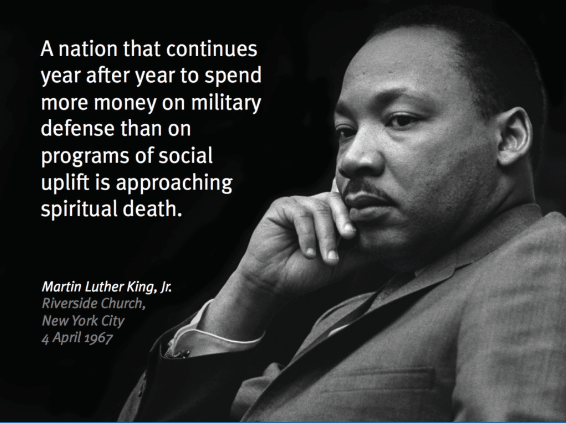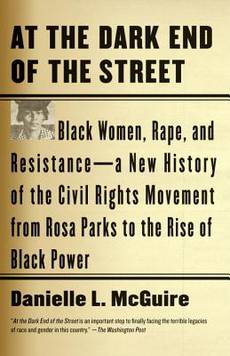Menu


Then and now: "A Time to Break Silence." Dr. Martin Luther King Jr's speech Beyond Vietnam was given 50 years ago, on April 4, 1967. A year to the day later, he was assassinated. See David T. Ratcliffe's April 4, 2017: 50 Years Ago: Riverside Church and MLK’s Final Year of Experiments With Truth
History in film: The Black Panthers Revisited
New York Times, Jan. 24, 2015: "Dr. Martin Luther King Jr. and the March on Washington are part of the political legacy inherited by today’s activists. But so too is the Black Panther Party. Both stories inform not only where we are today, but also where we might be heading."...
See accompanying 7.17 minute independent video: The Black Panthers Revisited
The related documentary film The Black Panthers, Vanguard of the Revolution, directed by Stanley Nelson, was released in early 2016.
The magnitude of lynching: report from February 2015
New Report on Lynching Reveals Sinister Legacy of 'Racial Terrorism' in America
From article published on February 10, 2015 by Lauren McCauley, staff writer, Common Dreams, which begins:
"Capital punishment and ongoing racial injustice in the United States are "direct descendents" of lynching, charges a new study, which found that the pre-World War II practice of "racial terrorism" has had a much more profound impact on race relations in America than previously acknowledged.
The most comprehensive work done on lynching to date, the investigation unearthed a total of 3,959 racially-motivated lynchings during the period between Reconstruction and World War II, which is at least 700 more killings than previously reported.
The report, Lynching in America: Confronting the Legacy of Racial Terror, published Tuesday by the legal nonprofit Equal Justice Institute (EJI), culminates the group's multi-year investigation into lynching in twelve Southern states (Alabama, Arkansas, Florida, Georgia, Kentucky, Louisiana, Mississippi, North Carolina, South Carolina, Tennessee, Texas, and Virginia) during that period.
These killings, EJI charges, are a form of terrorism. The "violent and public acts of torture" were widely tolerated, particularly by state and federal officials, and "created a fearful environment where racial subordination and segregation was maintained with limited resistance for decades." ...
read full article here
Books
At the Dark End of the Street: Black Women, Rape, and Resistance — A New History of the Civil Rights Movement from Rosa Parks to the Rise of Black Power
By Danielle L. McGuire. 2010. 352 pages. History of the violence against African-American women during the 20th century and the role played by Rosa Parks in the organized legal response to that abuse.
From Teaching a People's History: Zinn Education Project
““For decades,” McGuire writes, “the Montgomery bus boycott has been told as a story triggered by Rosa Parks’s spontaneous refusal to give up her seat followed by the triumphant leadership of men.” McGuire, assistant professor of history at Wayne State University, goes behind that story to tell of black women’s struggles against abuse by white bus drivers and police officers that launched the boycott. She foregrounds black women’s experiences of “verbal, physical, and sexual abuse” as prime movers of the grassroots movement. From the rape of Recy Taylor (1944) to the rape of Joan Little (1975), McGuire restores to memory the courageous black women who dared seek legal remedy, when black women and their families faced particular hazards for doing so. McGuire brings the reader through a dark time via a painful but somehow gratifying passage in this compelling, carefully documented work.” —Publisher’s Weekly

